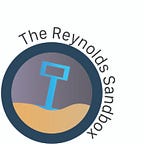Dennis Nieh, From High School Radio in San Jose to National TV & Radio Stardom in Taiwan
Kayla Smothers reports on how a move back to his native country spelled success for a broadcasting personality.
I sat down over Messenger with Dennis Nieh, a Taiwanese TV & Radio host and personality. He was so humble and gave great advice, and I asked him questions about his experience of how he came into his infotainment success in Taiwan. (Note: This interview was not recorded but transcribed through notes.)
Where did you grow up?
I was born in Taiwan, and moved to San Jose, California when I was seven years old. My family had already started immigrating to America during the 70s, so most of my family was already in the U.S. We were actually the last branch of the family to leave Taiwan.
What was your passion throughout school?
I have always loved singing since I was a kid, and grew up performing. I was also in the radio program at my high school (Leland High School, San Jose, CA). After that and during college I worked forLos Angeles radio stations, and had a chance to work for a Mandarin radio station, which gave me a chance to polish my Mandarin.
What led you to move back to Taiwan?
I had a career choice to make: to stay in the U.S. or move to Taiwan. At the time, media was opening up more and booming in Asia. TV stations used to be state run, and then cable came along. What used to be ten stations turned into one hundred in Taiwan, so the timing was just right to move back.
My first choice was actually to move to China. I was there for a few months, but it just turned out to be too much right then. So, I decided to change paths to Taiwan. I started in radio there for a while and branched out into TV, and an English-speaking station picked me up.
Is that when your career started to pick up?
Well, I was one of the only Americans who could speak Mandarin in Taiwan at the time. And during that time McDonald’s was looking for a new spokesperson, and I was chosen. The ad campaign was very successful and helped my career take off, and I feel like that put me more on the map, and I hosted radio studios inside McDonald’s all over Taiwan. The local audience was able to put my face to my name, and became more familiar with me.
A little while after this, Taiwan decided to host its first ever lottery. They needed a host, and came to me to audition, and after a few rounds of auditions I was chosen as the host. The lottery became a phenomenon in Taiwan; everyone was involved. The lottery sold so well that not only did Taiwan run out of lottery paper, but so did most of the world.
The lottery was a big success, so much so a show was built around it, kind of like a game show. There was a studio audience, and for two hours straight the show would go on until the highlight of the show, which was opening the lottery numbers. This show lasted five years, and I think it really put me on the map.
Variety shows are very popular in Asia, and local entertainment noticed me. In Taiwan, anything goes are the type of variety shows that are popular. I joined a team to produce a show, loosely translated to ‘Entertainment Big Brother’, which became the number one show for a few years.
At one point, I was doing five shows at once!
Being from America, I was able to host any foreign star that traveled to Taiwan, and created tight western connections. Bands from Oasis to Avril Lavigne to, in recent years [Australian actor] Hugh Jackman have come to promote on my show.
What are some challenges that you’ve come across moving from the U.S, and going into the entertainment world in Taiwan?
Culturally it’s a challenge. When it comes to entertainment it’s deep rooted, especially your appearance, and I wasn’t accepted as Taiwanese at first. There are no unions here, and work ethics are different. There is a lot of waiting in entertainment and you put in a lot of hard work.
At some points during the five shows I experienced losing my voice, and I would take some antibiotics and get back to work. For live TV, basically, dead or alive- you have to finish it.
What is your advice to get through long hours of work, and how do you find opportunities?
I would have someone ask themselves, “do you enjoy it?” If you love what you’re doing you will enjoy the process. Opportunities like waves, they just keep coming, but your life is like a surfer resting on a surfboard, are you ready to catch the next opportunity?
Did you see yourself being where you are today?
I never saw myself becoming a host, I always wanted to be a singer. But I’ve gotten to live out this dream too through a few musicals, which have also gone on tour.
Could you tell me more about the musicals?
Three years ago, I met up with Ang Lee, a local Taiwanese director of movies like the Incredible Hulk, The Life of Pie, Crouching Tiger and Hidden Dragon, etc. He had a script, and we turned it into a musical which we just wrapped up our 44th show, performing in front of over 70,000 people throughout the production. Now a Broadway production company wants the show and to start touring around Asia. And I’m also preparing to start the off-Broadway show, Fantasticks, which will have over 60 shows in Taiwan.
Any last pieces of advice?
Ask yourself, what do you want people to know you for and what makes you happy, and do that.
